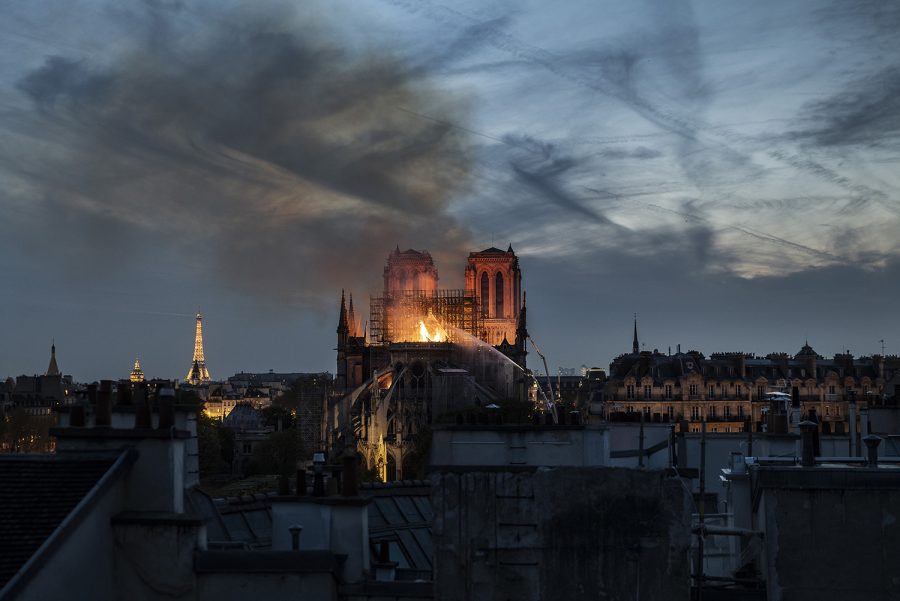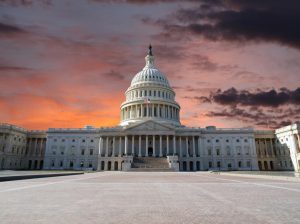Neal: How Notre Dame Cathedral’s fire sparks questions of priority
The Notre Dame Cathedral’s destruction engendered global mourning, and also billions of dollars toward repairs. But what does this say about our priorities as people?
Smoke and flames rise from Notre-Dame Cathedral on April 15, 2019 in Paris, France. A fire broke out on Monday afternoon and quickly spread across the building, collapsing the spire. The cause is yet unknown but officials said it was possibly linked to ongoing renovation work.
April 23, 2019
When Paris’ world-famous Notre Dame Cathedral caught fire on April 15, the world mourned.
Vigils were held, sad songs were sung by the thousands, and in just a matter of two days, roughly $1 billion was donated to rebuild the ruins of the historic standard.
$1 billion. In two days.
I’m not from Paris, obviously. And I’ve never had the chance to visit. But that so much money poured in for a building puzzled me.
I’m not completely ignorant, though I’m sure numerous comments on this column will beg to differ, but I can’t help but wish this money went to something more.
Almost 14 percent of the Paris population lives below the poverty line, per data collected from The Borgen Project.
According to data reported by Do Something, a nonprofit organization, there are roughly 3 billion people living in poverty worldwide.
That’s almost half the world’s population. Yet some of the wealthiest people in the world are choosing to donate billions to a building.
I’m not here to talk about the issues and implications of capitalism and greed, nor am I here to have a direct conversation about income inequality across the globe.
What I want to do is talk about priorities.
RELATED: A DI photojournalist’s firsthand account of the Notre Dame fire
When the historic cathedral burned, while millions watched in agony, church-goers of three historic Louisianan black churches watched their places of worship burn to the ground.
In Louisiana, these actions were intentional. They weren’t an accident like the unfortunate events that unfolded at Notre Dame.
I am focusing on the demolition of these three churches in Louisiana, not only because it’s a heinous crime of intolerance, but also because it happened at the exact same time as the events in Paris.
I study journalism — I get it. Notre Dame’s demise was history. It was unprecedented. Unexpected. In a sense, a tragic loss of artifact and architectural design. A large part of life, faith, and family to the people whose lives it touched.
I’m not trying to minimize or invalidate the people hurting from the burning of Notre Dame.
But I am saying that when our president acknowledges an accidental fire in France but fails to acknowledge three blatant acts of hatred, intolerance, and deep-rooted racism in our own country, we have a problem.
These actions are but a small portion of the numerous acts of human indecency taking place both foreign and domestically, yet the cathedral breaks the internet.
I can get on my soapbox and complain about this lapse in priority all day — and if I don’t stop myself now, I will.
Instead of honing in on my frustration, though, I want to talk about what we can do: Focus on people.
As human beings, it’s easier to focus on topical things — on relics and beauty and great depictions of the art our ancestors were capable of producing.
And you know what, to an extent, that’s OK. Those things should be acknowledged.
We need to know when to avert our eyes, to look away from the topical and focus on the real issues hindering equality and a basic quality of life — issues such as global poverty and intolerance. Issues that burn people, not plywood.







